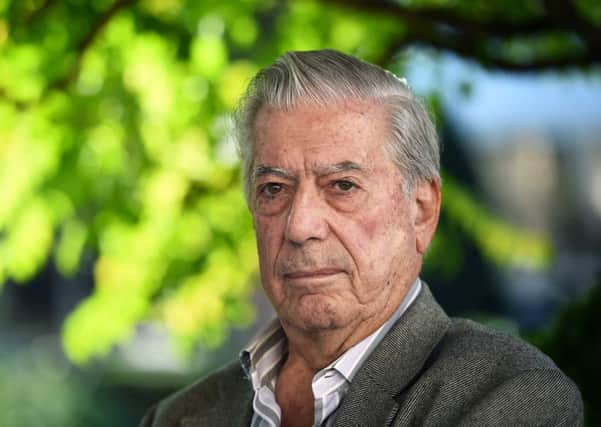Book review: The Neighbourhood, by Mario Vargas Llosa


On account of terrorism there’s a strict curfew in the city, so strict that it is observed even by the rich. This is why Marisa, wife of the engineering tycoon Enrique, persuades Chabela, wife of Enrique’s lawyer, Luciano, to stay the night. Sharing a large bed, brushing against each other, these friends for years become lovers. Their first love-making is delicately described, later episodes, and Marisa’s sex with Enrique, less delicately.
Over to criminality. Enrique is approached in his office by Rolando Garro, a muck-raking journalist, editor of a scandal sheet. He has a folder of photographs, very dirty photographs. Of course he has no intention of publishing them, but… it’s a big but. Perhaps the engineer would like to invest in his magazine, just a bit at first, then more later. Meanwhile he’ll leave the photographs with him to help him make up his mind.
Advertisement
Hide AdGarro is a rat. He doesn’t care who he ruins. That’s obvious. But he is capable of inspiring devotion, especially in the very young female journalist, Shorty, whom he has taken under his wing. He has of course many enemies, and deserves them. Juan Peineta is one man he has ruined. Once a TV star (though in a show he despised), Garro broke his career. Now with incipient dementia, he lives with a feral cat, and nurses his hatred of Garro .
Corruption is everywhere. The city stinks of it. Though Shorty doesn’t know it, her hero-editor takes instructions from the sinister Doctor, head of the Intelligence Services. He rakes only the muck the Doctor permits, or indeed orders, him to rake. When Enrique refuses to invest in the loathsome magazine and throws him out of his office, Garro has his revenge by publishing the compromising photos, with Enrique exposed on the cover of the scandal sheet. Humiliation and shame for Enrique – will it kill his pious mother? And has Garro perhaps gone too far?
The plot is strong enough to carry the reader along briskly. There’s a sense it’s really an excuse that allows Vargas Llosa to dwell on the horrors of the regime of Alberto Fujimoro (Vargas Llosa stood against him in the 1990 Presidential election). The sinister Doctor is evidently based on Fujimoro’s Director of Intelligence, Vladimiro Montesinos, now serving prison sentences for drug-trafficking, bribery, murder and offences against human rights. As in real life, he is brought down by his own insistence on recording conversations to be used against those he bribes and corrupts, a technique now employed against him.
The plot itself is fairly perfunctory. Any good crime novelist could construct a stronger one somewhat richer in surprises. But the plot is merely an excuse to allow the author to give us his grim picture of a country being squeezed to death by corruption, vice and violence, one where not even the rich are securely protected by their wealth, and where for the poor survival, simply getting through the day, is the highest ambition. They keep their heads down and slink along the streets close to the wall, trapped in a hell-hole where there is nothing to choose between the government and the terrorists, who in a sense live off each other. If even money cannot guarantee protection , the rich can at least look forward to a weekend break in Miami; the poor can’t even look forward to the dawn.
The Neighbourhood, by Mario Vargas Llosa,Faber & Faber, 256pp, £18.99